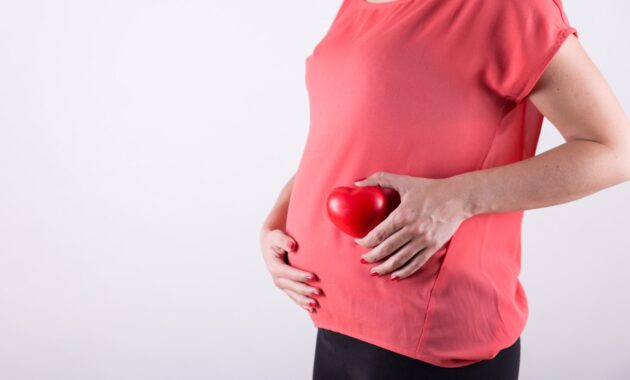Some pregnant women may experience rapid or pounding heartbeats. Know if you should worry about heart palpitations during pregnancy.
When you get excited, your heart starts racing. Pregnancy is one of those stages in life when you may excited. You will be looking forward to meet your little one growing inside you. But there may be times when you may feel as though your heart is skipping beats and pounding not just due to excitement. They are heart palpitations, which many pregnant women experience. The increased blood volume and hormonal changes during pregnancy can affect your heart. We tell you if you should worry about heart palpitations during pregnancy.
What are heart palpitations?
Heart palpitations are the sensations of fluttering, or pounding heartbeats that can be felt in the throat, neck apart from chest. While often harmless, they can sometimes be a sign of an underlying heart issue or result from factors like stress, says interventional cardiologist Dr Abhijit Borse.

How does pregnancy affect the heart?
Pregnancy can affect the heart in several ways. Hormonal changes and the increased blood volume can lead to an elevated heart rate. The heart has to work harder to pump more blood to support both the mother and the developing fetus. Also, hormonal shifts may cause changes in blood vessel function.
Heart palpitations can be relatively common during pregnancy, mainly due to the physiological changes that occur in the cardiovascular system. The increased blood volume, hormonal fluctuations, and the additional demands on the heart can contribute to palpitations, says the expert.
Also Read

While many pregnant women experience occasional palpitations that are normal, persistent or severe symptoms should be discussed with a doctor.
What are the causes of heart palpitations during pregnancy?
Heart palpitations during pregnancy can be attributed to various factors related to the physiological changes occurring in the body. Some common causes include:

Healthshots Inner Circle An exclusive wellness community for women
JOIN NOW
1. Hormonal changes
Increased levels of hormones such as progesterone can affect the cardiovascular system. This can lead to changes in heart rate and rhythm.
Select Topics of your interest and let us customize your feed.
PERSONALISE NOW
2. Increased blood volume
During pregnancy, the body produces more blood so that it can support the baby. During pregnancy, blood volume gets 20 percent to 100 percent higher than pre-pregnancy levels, as per the American Heart Association. This can result in the heart working harder and potentially causing palpitations.
3. Changes in blood pressure
Pregnancy can influence blood pressure, and fluctuations may contribute to heart palpitations, says the expert.
4. Stress and anxiety
Emotional stress or anxiety can be heightened during pregnancy. This may trigger palpitations.
5. Anemia
Anemia (low red blood cell count) is a common condition during pregnancy. It can lead to heart palpitations.
6. Caffeine sensitivity
Some pregnant women may become more sensitive to caffeine. Its intake can contribute to palpitations, says Dr Borse.

7. Physical activity
You can do exercises during pregnancy. But changes in physical activity levels or the strain on the body during exercise can sometimes lead to palpitations.
When to worry about heart palpitations during pregnancy?
Occasional heart palpitations during pregnancy are often normal due to hormonal and physiological changes. But persistent or severe palpitations may warrant concern, says the expert. Consult your doctor if;
- Palpitations occur frequently or last for an extended period.
- You also experience dizziness, chest pain or shortness of breath.
- They suddenly appear when they were not present before.
- You have pre-existing heart conditions.
In most cases, heart palpitations during pregnancy are benign, but it is essential to rule out any potential issues that could affect the health of both the mother and the baby.
You can manage stress through relaxation techniques and ensure proper hydration to prevent heart palpitations during pregnancy, says the expert. You should engage in moderate and approved physical activity as recommended by your doctor. Make sure you eat a well-balanced diet, and ensure to take iron-rich foods to prevent anemia.
Regular prenatal care and consultation with doctors are crucial during pregnancy to monitor and address any potential heart-related concerns.
#Heart #palpitations #pregnancy #worry
